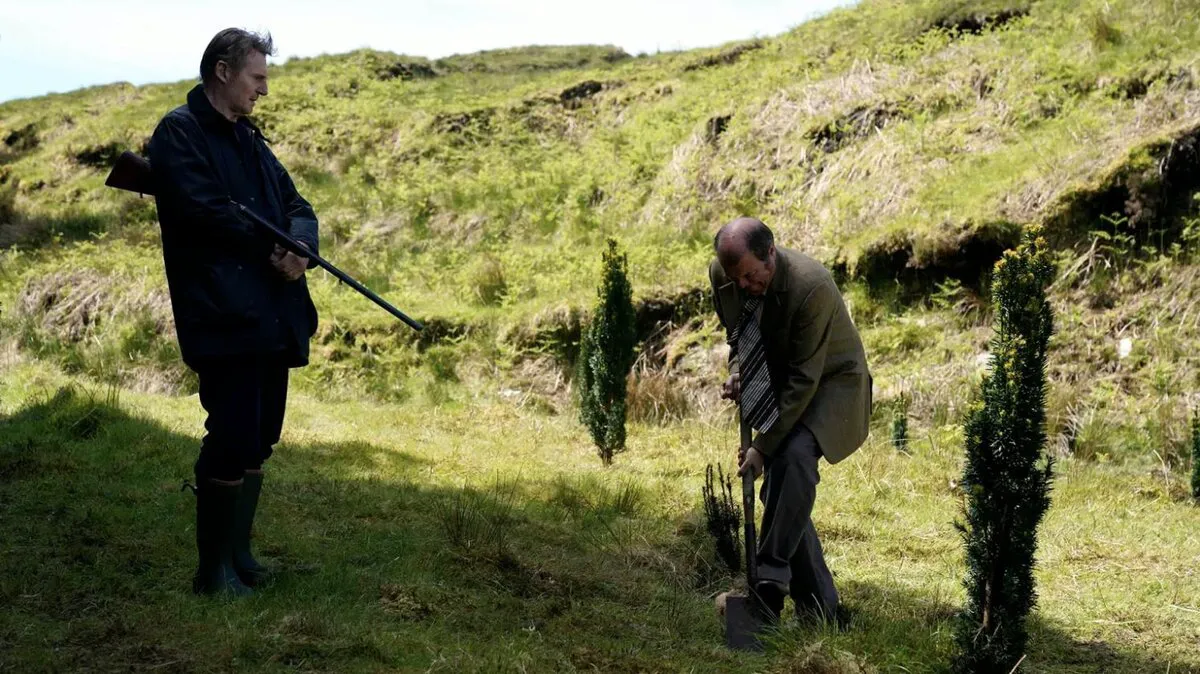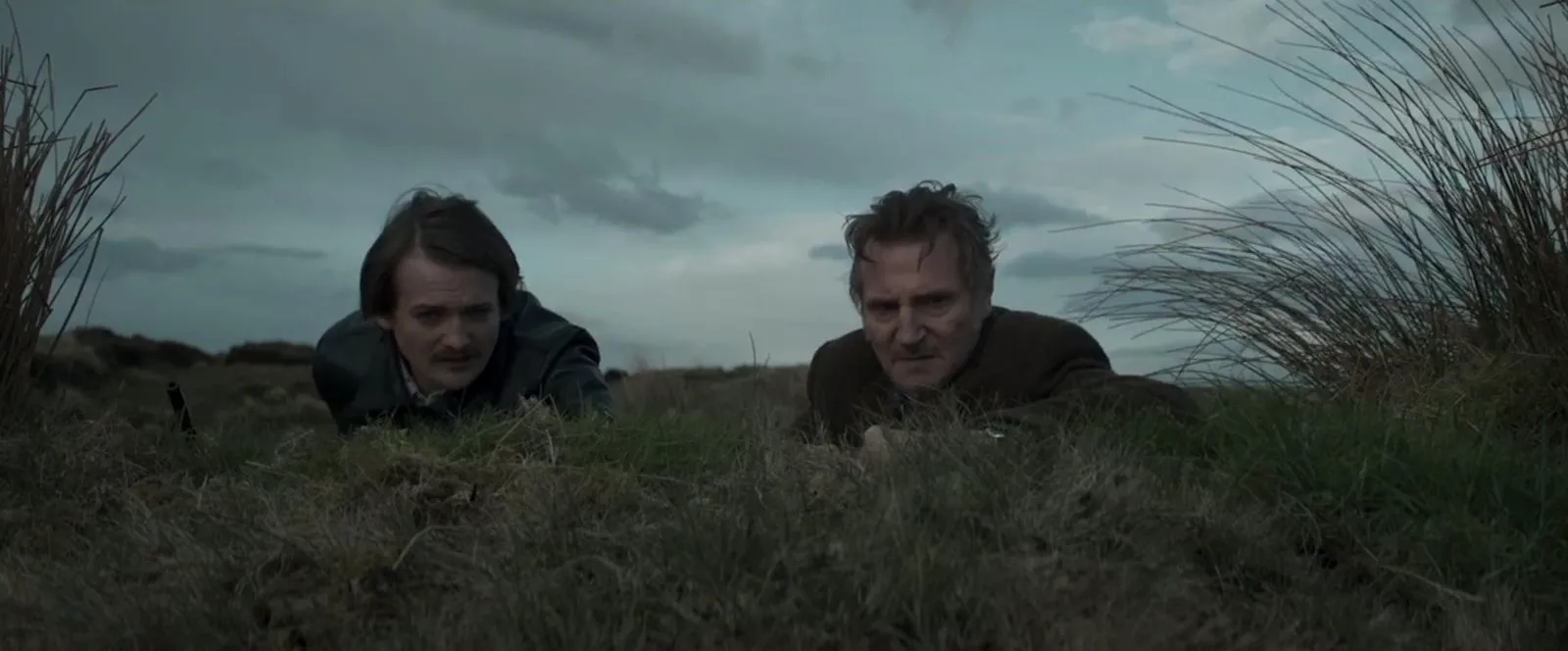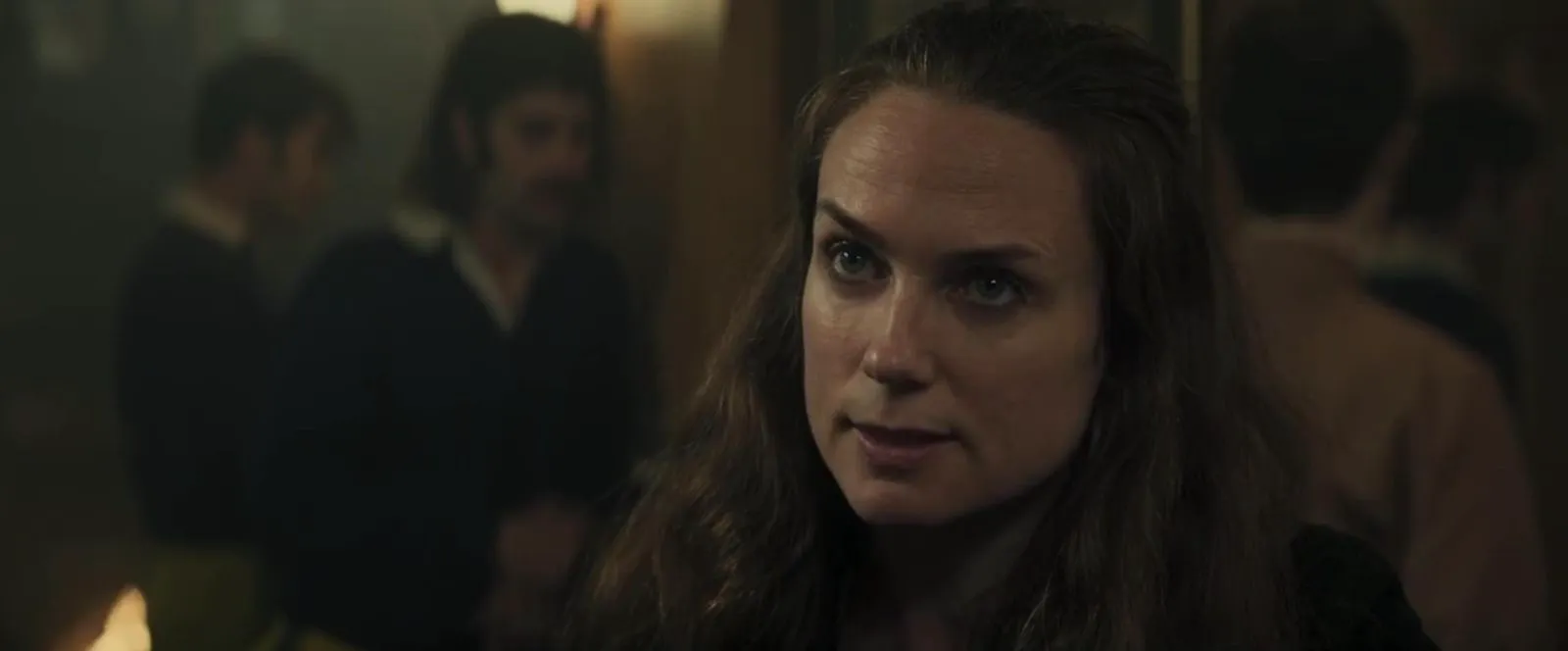The Last Mercenary: Liam Neeson Trades Punches and Ponders Dostoyevsky in Ireland
Finbar Murphy (Liam Neeson) lives a quiet life in a small Irish village, working as a hired gun and shooting tin cans in the company of the local officer (Ciarán Hinds). The year is a bloody 1974, and the civil war in Northern Ireland is claiming lives. The Irish Republican Army (IRA) is fighting for the secession of Northern Ireland from the United Kingdom and doesn’t shy away from terrorist methods. Violence breaks into the small village – Finbar learns that the locals are being intimidated by the Doireann gang. The mercenary will have to defend his right to a peaceful life and drive the villains out of the republican group.

Liam Neeson in a scene from “The Last Mercenary”
Cinema isn’t in a hurry to see off the old guard of action heroes. If it does say goodbye, it does so in the intricate manner of the Scorpions, who have been feeding fans “farewell tours” for 10 years – and still haven’t left the stage. Action movie veterans like “The Expendables” and 71-year-old Liam Neeson tour with the same rock-and-roll energy. The latter, it must be said, made a name for himself when his first wrinkles and gray hairs appeared, running around the streets with a gun in search of his missing daughter. “The Last Mercenary” (originally a much more lyrical “In the Land of Saints and Sinners”) brings Neeson’s list of action films to the size of a teletype tape. The Brit plays a lone wolf again, a stoic with a traumatic past who has been through the crucible of war. Fate is a fool, but a bullet isn’t: instead of a family, the hero has only his favorite rifle left, which, in a Chekhovian manner, sets the mechanism of a primitive plot in motion.

Jack Gleeson in a scene from “The Last Mercenary”
Robert Lorenz’s action film – a director who has worked with Neeson before (there was the unremarkable “The Marksman”) – starts with a bang. The viewer is given the living texture of Ireland, with landscapes of natural beauty that rivet you to the screen – you involuntarily begin to look for traces of Martin McDonagh (“The Banshees of Inisherin”) and Ken Loach (“The Wind That Shakes the Barley”), who have already told about the hard lot of the Irish land. However, Lorenz quickly shakes us off – tragedy is tragedy, but the audience came for action, so the history of the Irish conflict, where religious and territorial friction overlapped, fades into the background. What terror is there, what does the confrontation between Catholics from the IRA and Protestants have to do with it, he is not so interested in that, but a banal vendetta – yes. Only it is not Neeson who is bent on slaughter who takes revenge, but marginal terrorists led by the demonic heroine Kerry Condon.

Kerry Condon in a scene from “The Last Mercenary”
While the heroes don’t come together in the expected battle, the viewer has time to appreciate the beauty of Ireland. Emerald hills and monumental cliffs across the entire width of the frame, red-haired beauties live among this deserted timelessness, devoted to football and red ale. “Let’s meet in a pub” – the antagonist makes an appointment with the hero, choosing not a deserted backwater, but a noisy epicenter of Irish life. Which is very revealing, by the way – it turned out to be such a “very Irish movie”, except for the final shootout, clearly spied from an American Western. The polyphony of cultures does not end there: for greater importance, in a conversation with a local officer, Neeson’s mercenary shares his impressions of Dostoevsky. The hero was once taught good literature by his wife. One can only wonder how many bookworms have appeared in action films – haven’t we already seen this in the first “The Equalizer”? The plot, with all its “B-movie” simplicity, also takes off from an image created quite in the style of Dostoevsky – from a tear on the cheek of an innocent child. And then – the logic of Westerns and thrillers, which no philosophical support in the form of Dostoevsky can help.
A Verdict
Yes, this is again an optional, flimsy and simply unconvincing film, in which the authors failed to competently position either the heroes or the villains (why should we be on the side of Neeson’s killer, this time elegantly smoking a pipe, is a big question). But the main thing here is no longer the showdown between an elderly killer and a group of terrorists called upon to solve the national question, but the silent poetry of the green valleys. After the film, you are guaranteed to want to take a walk around Northern Ireland.